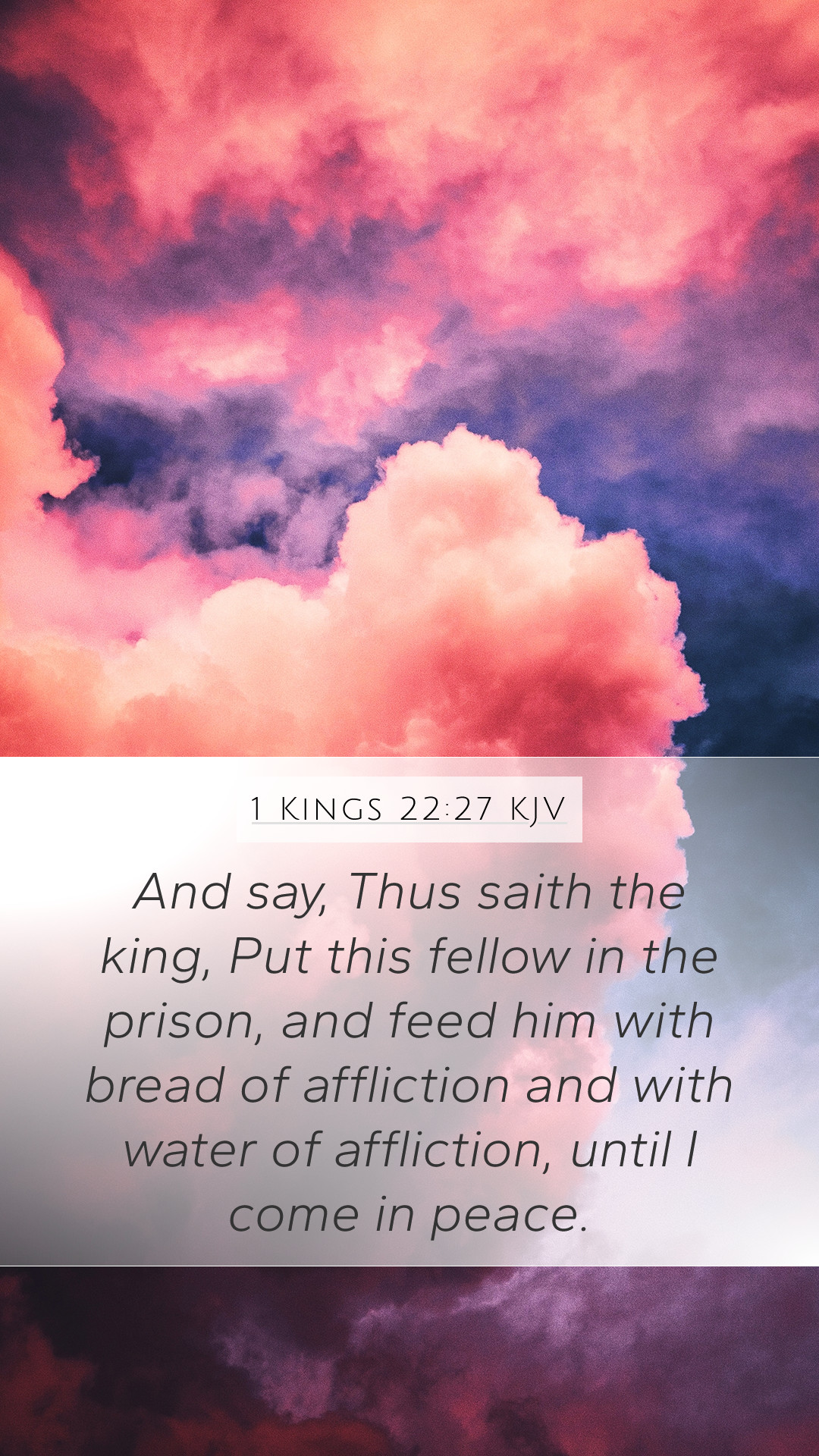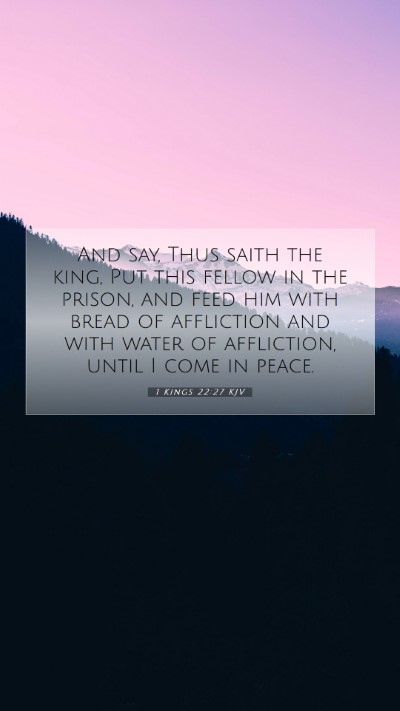Bible Verse Meaning: 1 Kings 22:27
1 Kings 22:27 states: "And say, Thus says the king: Put this fellow in prison, and feed him with bread of affliction and water of affliction until I return in peace." This verse captures a significant moment in the confrontation between Jehoshaphat, the king of Judah, and Ahab, the king of Israel.
Contextual Background
Ahab, driven by his quest for power and alignment with Syria, sought counsel from false prophets to justify his military ambitions against Ramoth-gilead. Despite the overwhelming support for the war from these prophets, Micaiah, a true prophet of the Lord, delivered an opposing message, highlighting God's disapproval of Ahab's actions and declaring impending doom for him should he proceed with his plans.
Understanding Scripture: Commentary Insights
-
Matthew Henry's Commentary:
Henry emphasizes the obstinacy of Ahab against the truth. He illustrates Ahab’s deep-seated malice toward Micaiah, as the prophet bore witness to Ahab’s wickedness and the inevitable consequences of his sinful pursuit of power. This verse encapsulates the hostile response from Ahab, as he resorts to imprisonment and deprivation, seeking to silence the voice of divine warning.
-
Albert Barnes' Notes:
Barnes notes that Ahab's request to imprison Micaiah reflects not just a personal grievance but symbolizes the broader rejection of divine wisdom. By feeding the prophet only with "bread of affliction" and "water of affliction," Ahab intended to suppress the truth and maintain control, a common trait among rulers who prioritize personal desires over righteousness.
-
Adam Clarke's Commentary:
Clarke draws attention to the brutality of Ahab's actions, which serve as a warning about the consequences of ignoring God's prophetic voice. He highlights that true prophets often face persecution when they stand firm in delivering difficult truths, an ongoing theme throughout the Scriptures. Clarke also connects this moment to a broader warning about the condition of Israel's leadership, marked by idolatry and disobedience.
Thematic Analysis
This verse raises important themes related to the rejection of truth, the consequences of false guidance, and the treatment of God's messengers. Ahab's treatment of Micaiah epitomizes the broader hostility towards divine truth prevalent in the society of that time, as well as today. In juxtaposing Ahab's actions against the prophetic voice, this passage invites readers to consider their own responses to divine counsel in their lives.
Application of the Verse
The essence of 1 Kings 22:27 can be applied to modern believers in several ways. The notion of facing opposition for standing firm in truth is timeless and applicable in many contexts. For those seeking to deepen their Bible study insights, this verse serves as a call to discernment in the face of popular opinion, encouraging adherence to God’s truth over societal norms or governmental pressure.
Cross References
- 1 Kings 18:17-18 - Elijah's confrontation with Ahab, highlighting the conflict between true worship and idolatry.
- 2 Chronicles 18:25-27 - Micaiah is imprisoned, illustrating the king's disobedience to God's Word.
- Jeremiah 20:1-3 - The persecution of prophets not conforming to the people's desires.
Conclusion
Understanding 1 Kings 22:27 provides a critical insight into the dynamic between divine truth and human response. For those seeking guidance on how to interpret Bible verses or understanding difficult Bible passages, engaging with this scripture leads to deeper reflections on fidelity to God's Word amid adversity.


